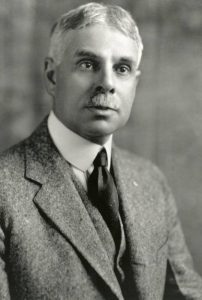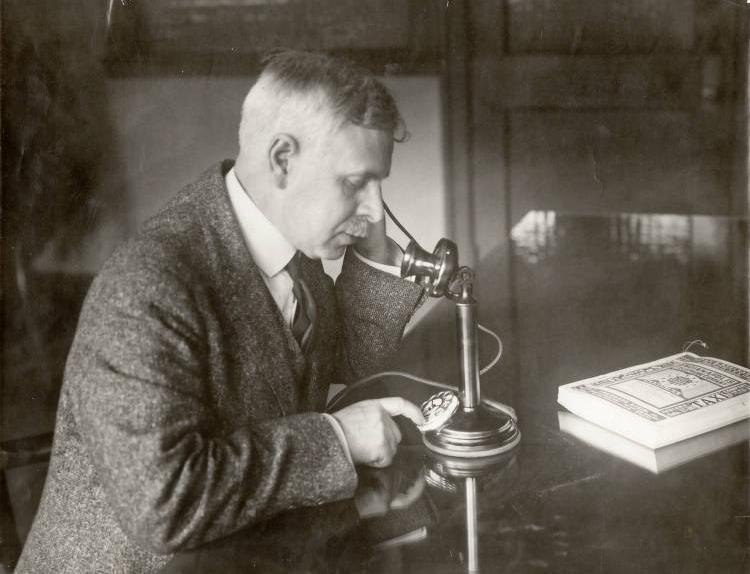
Photo info …
Credit: Indiana Historical SocietyView Source
(May 27, 1863-Jan. 28, 1942). Born in Boonville, Indiana, Fortune was largely self-educated through intense reading and through boyhood work as a printer’s helper and reporter on the . At 17, he wrote a history of Warrick County. In 1881, he began a lifelong interest by interviewing several people in nearby Spencer County who had known Abraham Lincoln during his Indiana years (1816-1830).

Moving to Indianapolis in 1882, Fortune worked for the as a reporter, then as city editor. Through his work, he became a friend of several Hoosier writers, notably and . He also developed a close relationship with . Briefly in 1888 Fortune edited the weekly ; he then joined the as a reporter and editorial writer.
Fortune worked with Col. Lilly in 1890 to launch the Commercial Club (forerunner of the ), which envisioned a broader program than the existing . He became the salaried secretary of the club (until 1894), while Lilly was president.
One major club objective was to get the city’s streets paved with something other than cobblestones and gravel; a in 1890 brought in exhibitors of new methods and materials. For 20 years (1890-1910) Fortune published a paving trade magazine called ; he also wrote an authoritative 1892 article on paving in .
Another successful Commercial Club effort gave the city a new charter (1891) providing expanded powers for the City Council (see ). The club began a 30-year campaign, led by Fortune after 1898, to elevate the city’s railroad tracks. In 1893 the club opened an eight-story office building, the city’s first “skyscraper,” and led in bringing over 100,000 veterans to a encampment, Indianapolis’ first large convention. Fortune did much of the detail work for all these enterprises.
An automobile enthusiast, Fortune founded the local auto club and was active in the Indiana Good Roads Movement. He served as host for Chinese on his visit to Indianapolis in 1904 and maintained contacts in China thereafter. From 1910 to 1924, Fortune was president of several independent telephone companies. His company installed automatic dialing several years before the Bell system. On the board of (1913-1927), he chaired the board’s finance committee (1916-1921).
In his later years, Fortune became an expert organizer and fundraiser for civic causes, including the local chapter of the Red Cross (founder; president 1916-1942) and the War Chest ($3 million in a week in 1918). In 1916, he purchased the for the organization that would later become the . The home was an anchor for the revitalization of the neighborhood.

Help improve this entry
Contribute information, offer corrections, suggest images.
You can also recommend new entries related to this topic.

